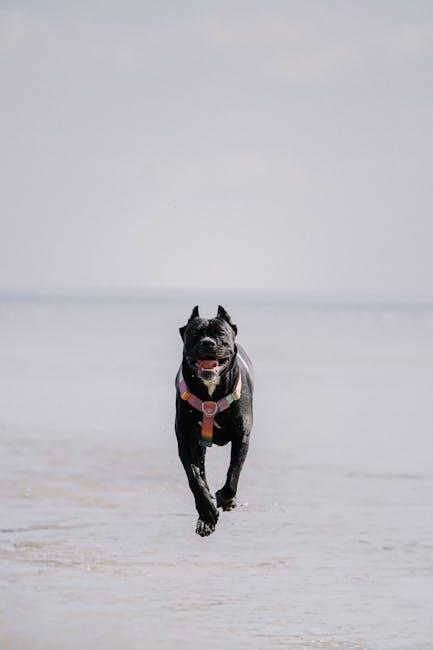Understanding why some dogs don’t enjoy playtime can be a perplexing challenge for pet owners. While playful antics are often seen as a hallmark of canine happiness, not all dogs share the same enthusiasm for toys and games. In this article, we’ll explore the various reasons why some dogs might shy away from play, delving into factors such as breed tendencies, past experiences, and individual personality traits. By shedding light on these aspects, we aim to help you better understand your furry friend and foster a more harmonious relationship. So, let’s embark on this journey to uncover the unique reasons behind a dog’s disinterest in play, and learn how to create a more enriching environment tailored to their needs.
Understanding Canine Preferences and Personalities
When it comes to understanding why some dogs shy away from playtime, it’s essential to recognize the diverse personalities and preferences that exist among our canine companions. Just like humans, dogs have their own unique temperaments and inclinations. While some dogs are naturally exuberant and playful, others may be more reserved or independent. Several factors contribute to these differences, including:
- Breed Characteristics: Certain breeds are predisposed to high energy levels and playfulness, while others may be more laid-back or focused on tasks.
- Past Experiences: Dogs that have experienced trauma or neglect might be wary of play, associating it with stress or fear.
- Health and Age: Older dogs or those with health issues may not have the physical capability or desire to engage in vigorous play.
- Socialization: Dogs that haven’t been adequately socialized might not understand play cues or feel comfortable engaging with other dogs.
Understanding these factors can help us better accommodate our dogs’ needs and preferences, ensuring they feel secure and content. Whether it’s a game of fetch or a cozy nap, honoring your dog’s individual personality is key to a happy, harmonious relationship.
Identifying Health Concerns That May Affect Playfulness
It’s not uncommon for dogs to exhibit less enthusiasm for play if they’re experiencing health issues. Identifying these underlying concerns can help in restoring their playful spirit. Here are some common health-related factors that might affect a dog’s inclination to play:
- Arthritis or Joint Pain: Older dogs or those with arthritis may find it painful to engage in active play.
- Dental Problems: Dogs with toothaches or gum disease might shy away from playing with toys.
- Obesity: Carrying extra weight can make physical activity uncomfortable, reducing a dog’s desire to play.
- Vision or Hearing Impairments: These can make playtime confusing or frightening for dogs.
- Respiratory Issues: Conditions like asthma or bronchitis can lead to fatigue, making play less appealing.
Addressing these health concerns with the help of a veterinarian can significantly improve a dog’s quality of life and potentially reignite their playful nature. Always keep an eye out for any changes in behavior and consult a professional when necessary.
Creating a Safe and Encouraging Environment for Play
When it comes to fostering a sense of security and enthusiasm in dogs, it’s essential to focus on creating an environment where they feel comfortable and motivated to engage. Here are some key elements to consider:
- Safe Space: Ensure that the play area is free from hazards. Remove any sharp objects or small items that could be swallowed. A fenced yard or a secure room can provide a controlled space for play.
- Positive Reinforcement: Use treats and praise to encourage play behavior. Rewarding your dog when they show interest in toys or engage with you can help build their confidence.
- Variety of Toys: Offer a range of toys that cater to different play styles. From chew toys to puzzle games, a diverse selection can spark curiosity and engagement.
- Routine and Consistency: Establish a regular playtime schedule. Consistent routines can help dogs anticipate and look forward to play sessions, reducing anxiety and resistance.
By nurturing a nurturing and supportive play environment, you’re not just encouraging your dog to play, but also strengthening your bond and enhancing their overall well-being.
Building Trust and Strengthening the Human-Dog Bond
- Understanding Your Dog’s Preferences: Every dog is unique, and just like humans, they have individual likes and dislikes. Some dogs may not be inclined to play because they simply prefer other activities, such as exploring their surroundings or engaging in scent-based games. Observing and respecting these preferences can help build a foundation of trust. By acknowledging their choices, you are showing them that you value their individuality, which can strengthen your bond.
- Creating a Safe Environment: Ensuring your dog feels secure and comfortable is crucial. A dog that feels threatened or anxious may not be interested in play. Take note of their body language and the context in which they refuse to play. Are they overwhelmed by loud noises or other pets? Addressing these factors can help your dog feel more at ease, allowing them to engage in play when they are ready. Building a safe environment fosters trust and encourages your dog to be more open to play in the future.

